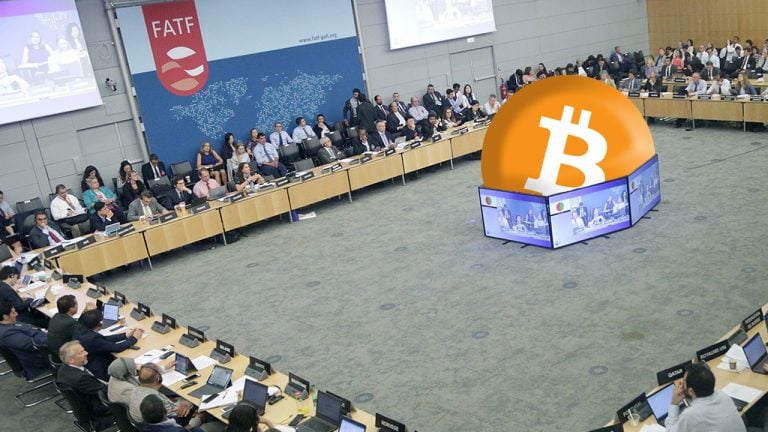FATF’s Annual Crypto Review Highlights ‘Continued Use of Anonymity Tactics’ and ‘Lack of Effective’ Regulation

The Financial Action Task Force (FATF) has published the organization’s 12-month review and the research highlights that only 45% of the 128 reporting jurisdictions have complied with AML/CFT policy and FATF recommendations. The annual review stresses that the “lack [of] effective” regulation makes it “challenging for competent authorities to follow the transaction trail, buying more time for criminals to move criminal proceeds.”
Less Than Half of the Reporting Jurisdictions Have Met FATF’s Crypto Compliance Standards
Over the last few years, the FATF intergovernmental organization has been focused on virtual assets (VA) and virtual asset service providers (VASPs). FATF is a group dedicated to combating money laundering (ML) and terrorism financing (TF) on a global scale. Bitcoin.com News recently reported on how the FATF applied the Travel Rule to stablecoins, decentralized finance (defi), and non-fungible token (NFT) assets. Further, the intergovernmental organization has been investigating the regulation of noncustodial wallets.
The 12-month review and the FATF researcher’s findings claim that only 45% of the 128 reporting jurisdictions have complied with the organization’s recommendations and standard AML/CFT policy. The report highlights two trends since the last 12-month FATF review on VAs and VASPs. FATF has noticed “the use of VASPs registered or operating in jurisdictions that lack effective AML/CFT regulation, as well as the use of multiple VASPs (local and/or overseas). This makes it more challenging for competent authorities to follow the transaction trail, buying more time for criminals to move criminal proceeds,” the entity’s research notes.
The global financial regulator has also observed the continued use of anonymity tactics applied to the cryptocurrency sector and related transactions. Following the onset of Covid-19, the FATF has “observed the increased use of virtual assets to move and conceal illicit funds. One jurisdiction reported the use of virtual assets to launder proceeds earned from selling COVID-19 medicine.” The FATF researchers believe regulating jurisdictions need to get a better grasp on the situation but instead, they are focused on “stablecoins” and “mass adoption.” One of the main trends in the cryptocurrency ML/TF risk landscape since June 2019 includes:
The continued use of tools and methods to increase the anonymity of transactions. This includes registering Internet domain names through proxies and using DNS registrars that suppress or redact the true owners of the domain names, the use of tumblers, mixers, and anonymity-enhanced cryptocurrencies or privacy coins, using decentralised exchanges and applications, chain-hopping and atomic swapping exchanges, and dusting.
FATF Hopes Jurisdictions Will Implement Regulations and Dissuasive Sanctions Toward Non-Compliant VASPs
The gist of the 23-page report is that the FATF is focused on getting jurisdictions to implement regulations toward ML and TF as deemed necessary. In a press statement, the global regulator insisted the “majority of jurisdictions have not yet implemented the FATF’s requirements, including the ‘travel rule,’ and this disincentivizes further investment in the necessary technology solutions and compliance infrastructure.”
Countries need to mandate that all VASPs comply with regulation and supervision or monitoring for AML/CFT, according to the report. The countries also need to make sure there are “effective, proportionate and dissuasive sanctions, whether criminal, civil or administrative” to deal with violating VASPs. “Sanctions should be applicable not only to VASPs, but also to their directors and senior management,” the report details.
The main objective highlighted in the FATF report notes the global regulator’s aims:
- The occasional transactions designated threshold above which VASPs are required to conduct customer due diligence is USD/EUR 1,000.
- Countries [to] ensure that originating VASPs obtain and hold required and accurate originator information and required beneficiary information on virtual asset transfers.
- Monitoring of the availability of information, and taking freezing action, and prohibiting transactions with designated persons and entities.
What do you think about the latest FATF 12-month review on VAs and VASPs? Let us know what you think about this subject in the comments section below.
Comments
Post a Comment